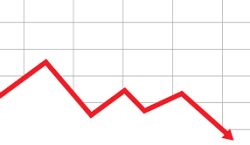

Master of ceremonies – C. Chimuka
Moderator
Mr. Marvellous Tapera, Tax Specialist …..
Speakers
Lewis Chikurunhe, Financial Gazette Managing Director
Maxwell Ngorima, Partner at BDO
Regina Chinamasa, Commissioner General ZIMRA
Susan Chirikure, ZITA Vice President
Lucia Chipungu, ICAZ TOLC Committee Member
Pardon Chitsuro, Economist, Chamber of Mines
Sekai Kuvarika, CEO of CZI
Simbarashe Hamudi, ZITA Technical Committee member
Organized by
The Financial Gazette
Report written by
Hilary Muza, Attorney practising with DLA Piper in Zimbabwe, Manokore Attorneys
Thursday, 2 March 2023.
Abstract
The session focused on looking into the socio-economic, administrative and legislative framework surrounding Zimbabwe’s tax regime and how synergies between business and government can be improved. Key issues looked at were the developments in the tax regime introduced throughout 2022 and how they have impacted businesses.

Regina Chinamasa, Commissioner General ZIMRA
Several dimensions of the current tax policy and legal framework were assessed. First, ZIMRA’s agenda for the year 2023 was presented. The presentation examined the challenges that ZIMRA faces in these times of volatile economic turmoil caused in part by external pressures like the COVID 19 virus, the Russia-Ukraine war and global climate change.
Second, the impact of recent changes to tax and finance legislation and policy on business was reviewed, and consideration was given to how to ensure compliance with business’ tax-paying obligations while making the applicable regulations and policies easier to comply with. Three discussants elaborated on the challenges facing businesses in complying with tax-related regulations and policies, brought on in part by the use of a dual monetary system, being United States Dollars and Zimbabwe Dollars.
(a) Regina Chinamasa, Commissioner General ZIMRA – Tax Commissioner’s Agenda for the 2023 tax year
Mrs. Chinamasa presented the key strategy points that ZIMRA will be adopting in the year 2023 aimed at streamlining its revenue collection processes. She highlighted that ZIMRA’s vision is to be a beacon of excellence in the provision of fiscal services and its mission is to facilitate sustainable compliance with fiscal and customs laws for the economic development of Zimbabwe.
She argued that a well-functioning tax collection structure is a key contributor to the government’s socio-economic obligations to the people of Zimbabwe in line with the concept of the social contract, peace and security, health, public services and education. Secondly, the challenges faced by Zimra were identified as including revenue mobilization in a volatile global economic landscape, the growth of a hidden and untaxable economy through informalisation, the high growth rate of digitalisation and telecoms, increased cross border transactions resulting in tax evasion and money laundering and generally high levels of non-compliance within the market.
Mrs. Chinamasa highlighted the key strategic points for ZIMRA this year in acting as a intermediary between the populace and government. In doing so, she emphasized the key result areas to be focused on; strengthening institutional image; maximising revenue collection; increasing voluntary compliance; enhancing trade facilitation and protection of society.
Specific reform measures were also addressed. Firstly, ZIMRA seeks to review employment income tax to align with levels of inflation. Secondly, submission of two tax returns to ensure compliance in declaring taxes in line with currency of trade. In communicating this point, Mrs. Chinamasa made it clear that there is need to be sensitive to stakeholders’ feedback in order to ensure continued compliance. To ensure this, the PAAB was engaged on how to align most effectively observing international best standards whilst enforcing applicable tax laws.
Furthermore, payment of mining royalties in kind to leverage government financing arrangements was discussed. This reform came into effect in the final quarter of 2022.

Master of ceremonies Christina Nyirenda-Chimuka
The review of VAT tax rate to 15% from 14.5% was aimed at widening the tax base. Also connected to the widening of the tax base is the review of the VAT registration threshold to US$40,000, also aimed at widening the tax base. This measure is further aimed at formalizing the lower end of the tax client spectrum.
Lastly, ZIMRA reviewed tax holiday requirements so that mining companies are not eligible for SEZ tax holidays.
Mrs Chinamasa additionally discussed administrative initiatives introduced by ZIMRA for more effective revenue collection which include:
Mrs. Chinamasa closed by emphasizing that corruption makes goods and services expensive. The appropriate measure for businesses to take is to resist and report it at the earliest instance.
(b) Maxwell Ngorima, Partner at BDO – An overview of the Zimbabwe Tax Environment
Mr. Ngorima started by highlighting the difficulty of dealing with retrospective tax legislation, specifically the obligation to file dual tax returns in local currency and foreign currency introduced by the Finance No. 8 Act of 2022. The Act came into effect on 24 October 2022 but its legal effect was retrospectively set as at 1 January 2022. Mr. Ngorima’s assessment of the net effect of this law is that it encourages tax avoidance and tax evasion by forcing businesses to adopt parallel sets of tax records which are not traditional books of accounts. He also addressed the issue of expenditure not supported by a fiscal invoice not being allowable for purposes of tax returns.
Concern was raised on account of Public Notice 74 of 2022 which provides that tax losses can only be carried forward in local currencies. The presenter’s concern was that if businesses are required to pay taxes in both local and foreign currencies, then tax losses must also be carried forward in both currencies.
Challenges with various tax heads i.e. Employment Tax, Capital Gains Tax and VAT were also addressed.
The informal sector must also contribute to the fiscus because 80% of tax is being paid by 20% of the fully compliant businesses.
With regards to dispute resolution, Mr. Ngorima called for more responsiveness from ZIMRA because if an objection is filed, then if no response is given within thirty days then it is deemed to be disallowed. This was sdeedmed to be unsatisfactory by businesses.
The issue of transfer pricing returns was also assessed in that the current regime looks at domestic transactions instead of cross border transactions. A turnover threshold for domestic transactions was suggested.
(c) Susan Chirikure, ZITA Vice President – Tax Planning for Compliance. Navigating the 2023 Tax Year and Beyond
Mrs. Chirikure posed some pertinent questions to the floor for them to assess for themselves how effective their tax planning systems are.
Tax legislation is making tax compliance more and more technical and thus difficult.
(d) Sekai Kuvarika, CEO of CZI – Overview of manufacturing industry challenges and proposed reforms
Mrs. Kuvarika highlighted that the key issue faced by taxpayers emanates from our volatile currency situation. To ameliorate this, there is need to resolve distortions from exchange rate environment. Part of it was suggested to be emanating from fear of loss of value because of distortions. The presenter also argued that ZIMRA also does not want to lose value. Therefore, the assumption that all sums are in USD unless proven otherwise does not reflect the Zimbabwe dollar component that businesses face. i.e. Zimbabwe dollar margins might be small but tax is high or volumes might be high but not profitable.
PAYE exemptions from taxes for civil servants and not other privately employed people was also discussed. Such segmentation has challenges but however the root cause can be traced back to the issue of currency distortions.
Mrs Kuvarika also posited that there are too many incentives for corruption currently due to the fear of loss of value. As a solution, exchange rate management was suggested as this will eliminate a lot of the challenges faced by the tax regime currently.
(e) Simbarashe Hamudi, ZITA Technical Committee member – 30% withholding tax on tenders’ impact on business
Mr. Hamudi discussed the shift from 10% withholding tax to 30% introduced by the Finance No. 2 Act of 2022 and how this change affects contracts entered by and between businesses. He also commented on the adjustment to 20% withholding tax on imported items.
Mr. Hamudi highlighted that under the new regulations, a dichotomy exists which requires the authorities’ attention. This dichotomy is that withholding tax is not charged to directors of companies, yet it is charged to consultants engaged by the company at a rate of 20%. Where an individual is both a non-executive director and a consultant, the disparate application of withholding tax might present problems for the company.
Failure to issue withholding tax returns in both currencies that are compliant with ZIMRA requirements is endemic at the moment. Cash flows are affected where it must be proven that the one who withholds the amount has remitted it to ZIMRA. If they fail, ZIMRA will not accredit them. It was suggested that ZIMRA should ensure businesses do not have challenges in obtaining tax clearance because it is unfair for businesses to suffer prejudice caused by ZIMRA’s delays in issuing tax clearance certificates.
Mr. Hamudi presented a scenario which the law does not seem to adequately address. The allegory presented was that where a registered business deals with an unregistered business and the transaction does not meet the threshold for withholding tax of US$1000, what happens when the two businesses transact again later in the year for, say US$1500? The assumption given was that the first transaction was deemed to be a once-off transaction and no further business was anticipated within the same tax year. The question posed was if the business withholds tax on the second transaction, what happens to the first?
(f) Mr. Jefious Makiwa (ZNCC) – economic outlook under the current tax regime
Mr. Makiwa commented that the global economy is anticipated to enter into a recession due to the slow-down in China, coupled with the Russia-Ukraine war. World’s major economies are generally underperforming. Domestic inflation is also high globally. As a result, a global recession is likely and Zimbabwe will possibly suffer some of the effects.
Locally, this puts pressure on government to support low income households as 49% of the population are anticipated to live below the poverty datum line. Investors are moving away from emerging market economies as they are volatile.
As a means of improving the tax regime, Mr. Makiwa posited that there are too many tax heads which promotes default, avoidance and in some cases company closures. Zimbabwe also has one of the largest informalized economies and the tax regime does not fully account for this.
(g) Mr. Pardon Chitsuro – review of the Zimbabwe mining royalty policy (Zimbabwe Chamber of Mines)
Mr. Chitsuro emphasized that since mining royalties are payments levied by government in exchange for the right to mine a finite resource, then such a levy should also make it attractive to investors to seek out our mineral resources. The point was made that mining royalties are an expense that goes to cost of production and so potentially dampens investors’ appetites if the amounts involved seem excessive.
Resultantly, companies approach only the high grade ores because they offer the highest return on investment. Marginal mines operate at close to breakeven levels, so their revenues are affected upfront. The net effect if this is that lesser grade ores are not explored and the potential revenue is lost forever.
In closing, Mr. Chitsuro made the point that All mining jurisdictions compete for the same capital. Optimal royalty improves investment competitiveness and thus promotes capital influx. To avoid becoming unattractive to international capital, there is need to benchmark our royalty structure.
(h) Lucia Chipungu – VAT change from 14.5% to 15% implementation matrix and impact on business
Mrs. Chipungu began her presentation by addressing the intention behind increasing VAT from 14.5% to 15%. The rationale she suggested was to increase revenue intake and help reduce the national budget deficit. VAT constitutes a huge portion of revenue for ZIMRA – 25.17% as of 2021.
The impact of the change can be seen mainly from the perspectives of registered operators, unregistered operators, and informal operators. For formal operators, there is the administrative burden of changing systems to reflect the 15% since the change came without due notice to the business community. There is however, no impact on pricing if dealing with other VAT registered entities. The cost implications arise when dealing with unregistered operators.
The dual business partner (BP) numbers cause administrative headaches because the system is not yet sufficiently upgraded to deal with USD and ZWL BP numbers.
For registered operators, there is too much of an administrative burden associated with dealing with unregistered operators. This increases the amount of work they have to do in ascertaining how much to withhold and adjusting their books accordingly. This is time and effort that could be used in doing other work. This also inadvertently drives up costs for businesses.
For informal operators, the change in VAT increases costs of inputs and puts inflationary pressure on prices.
Implementation issues arose because of the VAT change and they are that the associated costs were not budgeted. There was also no interim period to allow businesses to adjust and make appropriate system changes. Lastly, remittances are likely to decline because of the issues with the dual BP numbers.
A number of perspectives emerged in the general discussion. Several participants noted the disparity in the onerous legal requirements on businesses to comply with tax legislation and the amount of information given to businesses to help them comply. Also of interest was the implementation of systems and obligations by ZIMRA which left businesses feeling as though it were a top-down relationship as opposed to a mutual effort to fulfil the social contract.
Some participants highlighted insufficient or unclear laws as being the “elephant in the room” posing fundamental challenges to tax compliance generally.
Others questioned the 200% QPD variances on the 10% threshold, arguing that they are unsustainable in this hyper inflationary environment.
Finally, businesses need clarity on the obligations imposed by section 37AA of the Finance Act.
In their concluding remarks, the panellists noted that there is a need to lobby government to avail clearer tax laws. This was however suffixed by an acknowledgment that the difficulties imposed on the tax regime are a result of the dual economy that exists in the country. It was agreed that it is difficult to legislate two currencies using one legal and policy framework, thus making it necessary to ride out this current phase in the economy and hope for outright dollarization down the line.
Mr. Tapera, the moderator, summarized the session in two conclusions: a widespread call for more discipline when it comes to tax health checks and tax planning within organisations, a deeper level of engagement with government when it comes to the tax laws and policies that businesses are asked to comply with, and a call to resist corruption to make the system work as intended. The lively debate at the end of the session and follow-up talks after the session between participants and panellists showed the need to improve understanding of the topics involved.